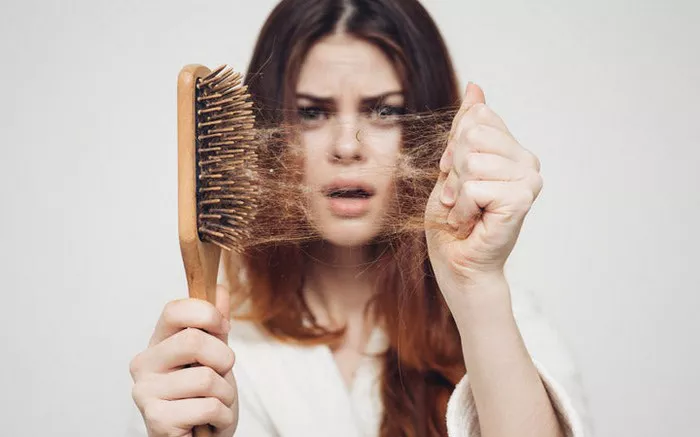Hair loss is a common concern that affects both men and women worldwide. While it is normal to lose some hair daily, excessive hair loss can be distressing and may indicate an underlying issue. Understanding the potential causes of excessive hair loss is crucial for identifying the root of the problem and seeking appropriate treatment. In this comprehensive article, we will explore various factors that can lead to excessive hair loss, shedding light on the possible triggers and offering insights into managing this condition.
The Culprits of Excessive Hair Loss
Several factors can contribute to excessive hair loss. Identifying the cause is essential for determining the appropriate treatment approach. Here are some common culprits of excessive hair loss:
1. Hormonal Imbalance
Hormonal imbalances can disrupt the hair growth cycle, leading to hair loss. Conditions such as polycystic ovary syndrome (PCOS), thyroid disorders, and hormonal fluctuations during pregnancy or menopause can trigger excessive shedding. Androgenetic alopecia, commonly known as male or female pattern baldness, is also influenced by hormonal factors and can result in progressive hair loss.
2. Stress and Emotional Distress
Stress, whether physical or emotional, can have a significant impact on hair health. Extreme stress can push hair follicles into a resting phase, causing a higher number of hairs to shed simultaneously after a few months. This condition is known as telogen effluvium, and it is usually temporary. Managing stress through relaxation techniques and self-care can help prevent and reduce hair loss due to stress.
3. Nutritional Deficiencies
A balanced diet rich in vitamins, minerals, and protein is crucial for maintaining healthy hair. Deficiencies in nutrients such as iron, zinc, biotin, and vitamin D can lead to hair thinning and loss. Individuals with restrictive diets, eating disorders, or certain medical conditions may be more susceptible to hair loss due to nutritional deficiencies.
4. Medical Conditions and Medications
Certain medical conditions and medications can contribute to hair loss. Autoimmune diseases like alopecia areata cause the body’s immune system to attack hair follicles, resulting in patchy hair loss. Medications such as chemotherapy drugs and some antidepressants may also lead to hair shedding as a side effect.
5. Scalp Infections and Disorders
Infections and skin disorders affecting the scalp can damage hair follicles and lead to hair loss. Conditions like scalp psoriasis, seborrheic dermatitis, and fungal infections can cause inflammation and hinder healthy hair growth.
6. Overstyling and Harsh Hair Care
Excessive heat styling, tight hairstyles (like braids or ponytails), and the use of harsh hair care products can damage the hair shaft and weaken the strands. This can lead to breakage and hair loss over time.
7. Age and Genetics
As we age, the rate of hair growth may slow down, and the diameter of individual hair strands can become thinner. Additionally, genetics play a significant role in determining an individual’s susceptibility to certain types of hair loss, such as androgenetic alopecia.
8. Environmental Factors
Environmental factors, such as exposure to pollution, ultraviolet (UV) radiation, and harsh weather conditions, can impact hair health. They can contribute to dryness, breakage, and overall hair damage.
9. Sudden Weight Loss
Rapid and significant weight loss, often associated with crash diets or certain medical conditions, can trigger telogen effluvium, leading to temporary hair shedding.
10. Hair-Pulling Disorders
Hair-pulling disorders, such as trichotillomania, involve recurrent and compulsive pulling of hair, leading to hair loss and thinning in affected areas.
Treatment for hair loss
Treatment for hair loss can vary depending on the underlying cause. Common approaches include over-the-counter topical medications like minoxidil, prescription oral medications like finasteride, and low-level laser therapy. For more severe cases, hair transplant surgery or platelet-rich plasma (PRP) therapy may be considered. Lifestyle changes, such as reducing stress, maintaining a balanced diet, and avoiding tight hairstyles or harsh chemical treatments, can also support hair health. It’s essential to consult a dermatologist or a hair loss specialist to determine the most suitable treatment based on individual factors and the specific type and extent of hair loss.
Conclusion
Excessive hair loss can be a distressing and challenging experience, but it is essential to remember that effective treatments are available. Identifying the cause of hair loss is the first step in finding a suitable solution. Maintaining a healthy lifestyle, managing stress, and adopting proper hair care practices can go a long way in preserving and promoting healthy hair growth. Remember that hair loss is a common issue faced by many individuals, and seeking professional guidance can provide the support and treatment needed to restore confidence and maintain a healthy head of hair.


